Filter by
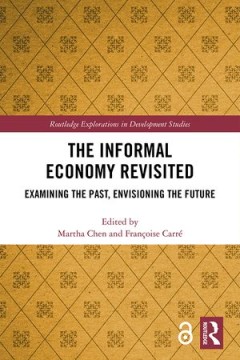
The Informal Economy Revisited ;:Examining the Past, Envisioning the Future
This landmark volume brings together leading scholars in the field to investigate recent conceptual shifts, research findings and policy debates on the informal economy as well as future challenges and directions for research and policy. Well over half of the global workforce and the vast majority of the workforce in developing countries work in the informal economy, and in countries around the…
- Edition
- -
- ISBN/ISSN
- 9780429577499
- Collation
- -
- Series Title
- -
- Call Number
- 650
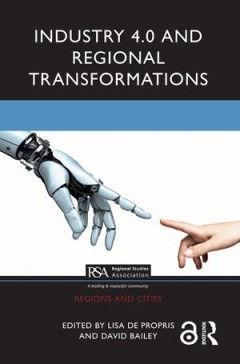
Industry 4.0 and Regional Transformations
This edited volume brings together a group of expert contributors to explorebthe opportunities and the challenges that Industry 4.0 (smart manufacturing) is likely to pose for regions, fi rms and jobs in Europe. Drawing on theory and empirical cases, it considers emerging issues like servitization, new innovation models for local production systems and the increase in reshoring.Industry 4.0 and…
- Edition
- -
- ISBN/ISSN
- 9780429603587
- Collation
- -
- Series Title
- -
- Call Number
- 650
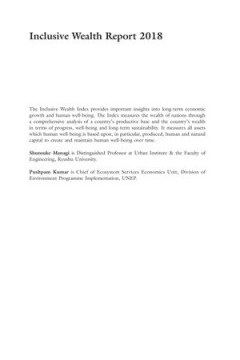
Inclusive Wealth Report 2018
The Inclusive Wealth Index provides important insights into long-term economic growth and human well-being. The Index measures the wealth of nations through a comprehensive analysis of a country's productive base and the country’s wealth in terms of progress, well-being and long-term sustainability. It measures all assets which human well-being is based upon, in particular, produced, human an…
- Edition
- -
- ISBN/ISSN
- 9781351002080
- Collation
- -
- Series Title
- -
- Call Number
- 650
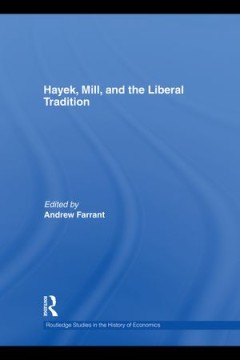
Hayek, Mill and the Liberal Tradition
This book considers the relationship between Hayek and Mill, taking issues with Hayek’s criticism of Mill and providing a broader perspective of the liberal tradition. Featuring contributions from the likes of Ross Emmett, Leon Montes and Robert Garnett, these chapters ask whether Hayek had an accurate reading of the ideas of Mill and Smith, as well as considering themes such as sympathy and …
- Edition
- -
- ISBN/ISSN
- 9780415779340
- Collation
- -
- Series Title
- -
- Call Number
- 650
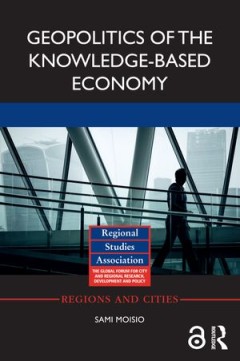
Geopolitics of the Knowledge-Based Economy
We live in the era of the knowledge-based economy, and this has major implications for the ways in which states, cities and even supranational political units are spatially planned, governed and developed. In this book, Sami Moisio delves deeply into the links between the knowledge-based economy and geopolitics, examining a wide range of themes, including city geopolitics and the university as …
- Edition
- -
- ISBN/ISSN
- 9781317587767
- Collation
- -
- Series Title
- -
- Call Number
- 650
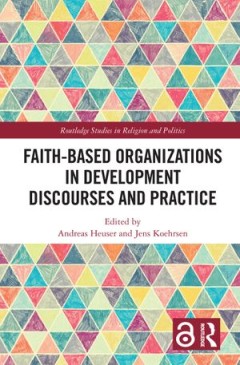
Faith-Based Organizations in Development Discourses and Practice
Exploring faith-based organizations (FBOs) in current developmental discourses and practice, this book presents a selection of empirical in-depth case-studies of Christian FBOs and assesses the vital role credited to FBOs in current discourses on development.Examining the engagement of FBOs with contemporary politics of development, the contributions stress the agency of FBOs in diverse context…
- Edition
- -
- ISBN/ISSN
- 9781000734249
- Collation
- -
- Series Title
- -
- Call Number
- 650
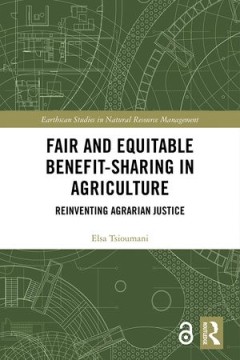
Fair and Equitable Benefit-Sharing in Agriculture (Open Access) : Reinventing…
This book explores the emergence and development of the legal concept of fair and equitable benefit-sharing, and its application in agriculture.Developed in the 1990s, the concept of fair and equitable benefit-sharing has been deployed in an ever-wider variety of international instruments, including those on biodiversity, climate change and human rights. A lack of clarity persists, however, on …
- Edition
- -
- ISBN/ISSN
- 9780429584183,
- Collation
- -
- Series Title
- -
- Call Number
- 650
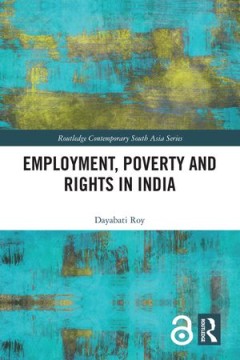
Employment, Poverty and Rights in India
In comparison to other social groups, India’s rural poor – and particularly Adivasis and Dalits - have seen little benefit from the country’s economic growth over the last three decades. Though economists and statisticians are able to model the form and extent of this inequality, their work is rarely concerned with identifying possible causes.Employment, Poverty and Rights in India analys…
- Edition
- -
- ISBN/ISSN
- 9781351065412
- Collation
- -
- Series Title
- -
- Call Number
- 650
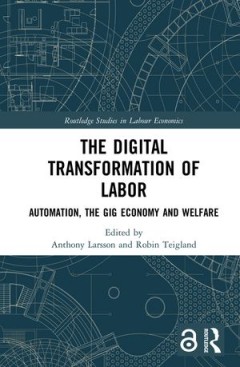
The Digital Transformation of Labor : Automation, the Gig Economy and Welfare…
Through a series of studies, the overarching aim of this book is to investigate if and how the digitalization/digital transformation process causes (or may cause) the autonomy of various labor functions, and its impact in creating (or stymieing) various job opportunities on the labor market. This book also seeks to illuminate what actors/groups are mostly benefited by the digitalization/digital…
- Edition
- -
- ISBN/ISSN
- -
- Collation
- -
- Series Title
- -
- Call Number
- 650
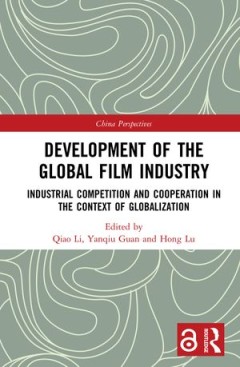
Development of the Global Film Industry : Industrial Competition and Cooperat…
The global film industry has witnessed significant transformations in the past few years. Regions outside the USA have begun to prosper while non-traditional production companies such as Netflix have assumed a larger market share and online movies adapted from literature have continued to gain in popularity. How have these trends shaped the global film industry? This book answers this question …
- Edition
- -
- ISBN/ISSN
- 9781000092424
- Collation
- -
- Series Title
- -
- Call Number
- 650
 Computer Science, Information & General Works
Computer Science, Information & General Works  Philosophy & Psychology
Philosophy & Psychology  Religion
Religion  Social Sciences
Social Sciences  Language
Language  Pure Science
Pure Science  Applied Sciences
Applied Sciences  Art & Recreation
Art & Recreation  Literature
Literature  History & Geography
History & Geography